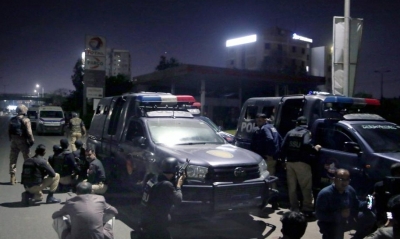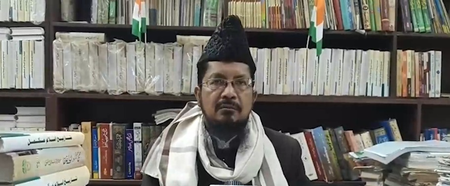
Seoul, Dec 14 (IANS) The South Korea’s Constitutional Court has kicked off a process on Saturday to deliberate a parliamentary decision to impeach President Park Yoon Suk Yeol over his botched martial law attempt.
Yoon’s impeachment resolution was submitted to the Constitutional Court at 6:15 p.m. by Jung Chung-rae, chair of the National Assembly’s Legislative and Judiciary Committee, a Court official said.
Moon Hyung-bae, the acting chief of the Constitutional Court, said he will convene a meeting of judges at 10 a.m. on Monday, and vowed to conduct a ‘swift and fair’ trial, Yonhap news agency reported.
The Court has also decided to pick two judges to oversee an examination of evidence and form a legal review task force consisting of constitutional researchers.
Meanwhile, the South Korea’s National Assembly voted on Saturday to impeach President Yoon Suk Yeol over his botched imposition of martial law.
Yoon will be suspended from his duties as soon as the impeachment resolution is delivered to his office, while Prime Minister Han Duck-soo will serve as Acting President, reports Yonhap news agency.
An impeachment motion against Yoon passed 204-85, with three abstentions and eight invalid ballots, with all 300 lawmakers casting their ballots.
Yoon Suk Yeol’s contentious martial law decree, the first issued in over four decades, was in effect for merely six hours but has incited significant political turmoil, disrupted diplomatic engagements, and unsettled financial markets.
Yoon was compelled to rescind the decree following a unanimous vote by the South Korean parliament to annul it. In the aftermath of the martial law declaration, Yoon stationed hundreds of troops and police officers at the parliament in an effort to obstruct the vote on the decree; however, they retreated once the parliament rejected it.
Yoon is now the second President to confront impeachment proceedings. Following the approval of the motion, the Constitutional Court will assess whether to reinstate Yoon or to remove him permanently. He follows in the footsteps of Park Geun-hye, who was dismissed in 2017.
Park Geun-hye, who took office in 2013, faced parliamentary impeachment, which was upheld by the Constitutional Court in March 2017, leading to her prosecution and subsequent imprisonment. She was also accused of leaking classified information, maintaining a list of artists who criticised her policies, and dismissing officials who opposed her decisions.
–IANS
int/jk/as




